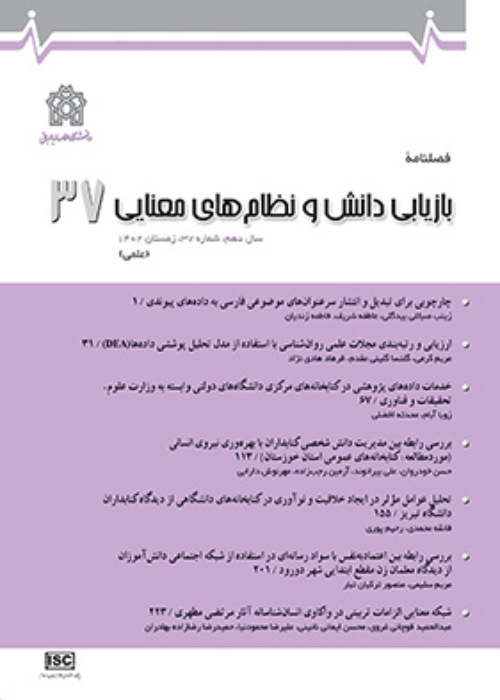Required factors for Implementing of Knowledge Management System Based on ISO 30401: Operational Approach
Knowledge must be a key value-creating resource for organizations and the knowledge management system (KMS) shall be embedded into the overall enterprise management system. Accordingly, KM has been included in the ISO 30401 standard specifying requirements for KMSs. The implementation of the ISO Knowledge Management (KM) standard is gaining increasing attention among organizations and it is bringing out several issues to investigate, such as required factors (RFs) for the implementation of KM in them based on ISO 30401 ways of “standardizing” KM systems, and risks, challenges and benefits of implementing the standard.
Research Question (s):
This paper aims to answer the question: What factors are required to implement KM in organizations based on ISO 30401?
Literature Review:
In the past 40 years, management theory has come a long way toward explaining how value can be created from knowledge. Building on the Resource-based View, the disciplines of intellectual capital (IC) theory and knowledge management (KM) theory have thoroughly theorized the links between knowledge and firm value. On this basis, countless management initiatives have been devised and empirically examined. Against this backdrop, the International Standards Organization (ISO) released a Management Standard on Knowledge Management Systems (KMS(, which aims “to support organizations to develop a management system that effectively promotes and enables value-creation through knowledge. The ISO 30401 Knowledge Management Systems – Requirements is based on the intention to create a common denominator of an international KM development history and implementation guide. The proposed standard is an opportunity to create a common language for global conversations about KM that just might help organizations manage knowledge more effectively. One may add that the standard can also support KM scholars in agreeing on a joint theoretical and conceptual basis for future research and teaching. However, this requires a theoretical foundation. To date, the ISO 30401 has been examined at a general level, with the analysis focusing on the advantages of and criticisms to the overall structure and content of the standard. There have also been some publications on specific narrow aspects of ISO 30401, such as its implications for risk management, controlling, or enterprise architecture models. The standard has, however, not yet been systematically researched to the identified required factors (RFs) for the implementation of KM in the organizations based on ISO 30401. To fill this gap, this paper aims to the identified required factors (RFs) for the implementation of KM in the airport industry based on ISO 30401. This Is Level 2 Drawing on a review of the literature on the ISO standard for KM, the paper provides a conceptualization of the ISO KM standard through some conceptual and mind maps in Airports that systematically combine the KM requirements of ISO.
Knowledge management factors in the airport industry were first identified by utilizing a Meta-synthesis method, classified based on ISO 30401, and embedded them into a conceptual model. The questionnaire was distributed to 384 employees of Iran Airports and Air Navigation Company (IAANC) and the relationship between RFs and the structural validity of the conceptual model of research was examined by the method of confirmatory factor analysis.
The findings showed that the RFs to implement a management system for KM in IAANC include the strategy, organization’s KM culture, structure, governance and leadership; roles and responsibilities; planning, technology, processes, and operation and includes requirements that each representing a dimension of the KMS, which are interdependent: Knowledge development, knowledge conveyance and transformation and KM enablers. This study is the first to provide an integrative perspective of RFs for implementing KMS in airports based on ISO 30401. Such an identification of the RFs of the KMS could well formulate effective strategies for enhancing value-creating and improving the performance of organizations.
The findings of the structural validity of the theoretical construct using confirmatory factor analysis showed that the variables of support, the culture of knowledge management, and leadership have the greatest effect on knowledge management with values close to 0.94, 0.93, and 0.92 respectively. Planning, structure, strategy, operation, and technology and infrastructure with values of 0.88, 0.86, 0.80, 0.74, and 0.68 are respectively in the next priorities.
- حق عضویت دریافتی صرف حمایت از نشریات عضو و نگهداری، تکمیل و توسعه مگیران میشود.
- پرداخت حق اشتراک و دانلود مقالات اجازه بازنشر آن در سایر رسانههای چاپی و دیجیتال را به کاربر نمیدهد.



